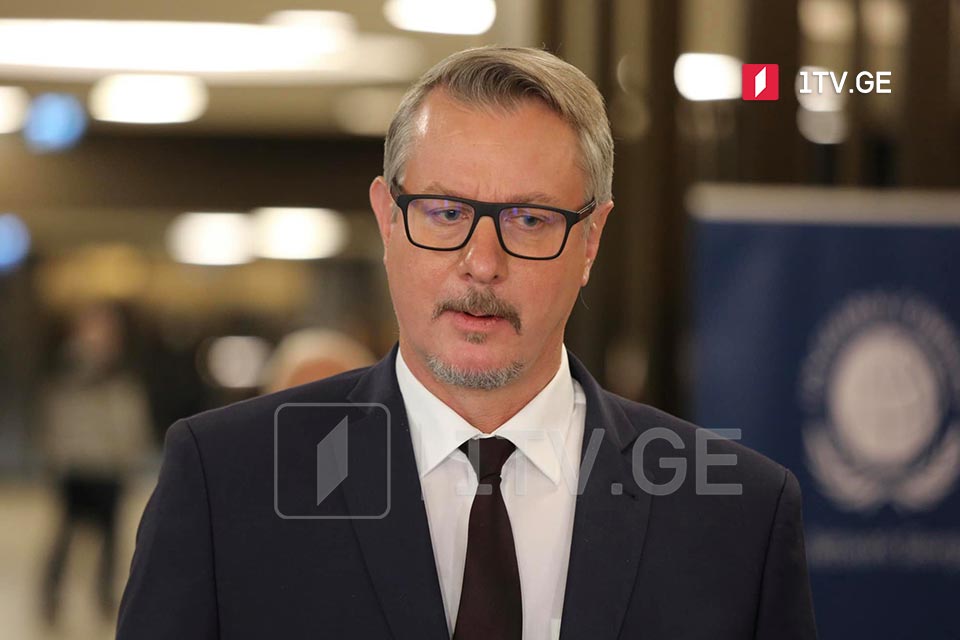EU membership not to be something that happens overnight, Ambassador Hartzell says
“Becoming a member of the European Union is not something that happens overnight, but is subject to a thorough process over several years, involving substantial work across all membership criteria”, stated EU Ambassador to Georgia, Carl Hartzell, when answering the citizens’ questions about the European perspective.
To the question “To what extent was the refusal to grant Georgia candidate status at this stage connected to the fact that there are no military operations in our country”, Ambassador remarked that “presence of military operations is in no way such a criterion”.
“The Commission assessed Georgia, Ukraine and Moldova on their own merits and based on set criteria. The presence of military operations is in no way such a criterion. The European Union has been Georgia’s strong partner since the early days of independence. Over the past decades, we have invested great financial and human resources to help Georgia advance on its European path. And just recently, the European Union officially recognised Georgia’s European perspective, which is a great achievement on which to build further,” Ambassador Hartzell said.
Hartzell categorically denied the claims as if the West wants to see Georgia being dragged into the Russia-Ukraine war.
“Absolutely not, and I am really disappointed to see those trying to make such false claims, whether directed at the EU or the US. As you will have seen, from day one of Russia’s unprovoked and unjustified war in Ukraine, the EU has been working hard with partners to put an end to these atrocities, and to bring a just peace to Ukraine and its population. At no point in the past, or in the future, has or will the European Union want to see this war spreading further,” he said.
As to the question about the timeline for Georgia to join the EU, Carl Hartzell noted that EU joining does not happen overnight.
“Becoming a member of the European Union is not something that happens overnight, but is subject to a thorough process over several years, involving substantial work across all membership criteria. The pace of accession depends on the progress of reforms, first and foremost in the fundamental areas linked to the core values of the European Union, including the rule of law, democratic institutions and human rights for all. Right now, Georgia is encouraged to address the 12 priorities outlined by the European Commission in order to receive candidate status and advance the process further,” he declared.
When asked whether the EU accept Georgia before Turkey, the EU ambassador noted that “There is no clear, pre-defined timeline for any potential candidate or current candidate country”.
He continued” “The speed at which Georgia moves forward is in the hands of the Georgian government. The Opinion sets out what the next steps are, and the key priorities that need to be addressed are well within reach. The European path remains a merit-based process, which closely follows progress in key reforms. There are no shortcuts to membership: only tangible progress will succeed in driving the process forward. EU decisions on future steps will continue to be in the hands of its Member States, who take decisions with unanimity on these matters”.
“It is not accidental that the Commission speaks about “the spirit of the 19 April Agreement” in its Opinion, as it set an example for the type of cross-party work now needed. The parties will now have to sit down and agree on the way forward, and the 19 April Agreement remains a good starting point on both process and content”, Ambassador replied to the question about the 19 April Agreement.

